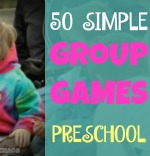Is it time for a Tutor?
Do you need a tutor for you child? Is your child bringing home one bad report card after the other? Have you noticed your child has difficulty studying or doing homework on a particular subject? If so, you should probably consider hiring a tutor to help them study.
This post contains Amazon affiliate links.
Most children occasionally struggle with school, but when it turns into a rapid decline in grades, frequent meltdowns, and hating going to school, it's time to get a plan in order.
So, what are the signs that your child may need a tutor? Keep reading to learn 5 important signs that you're child may need a tutor.
1. Homework Meltdowns
If your child has regular homework meltdowns, it's probably because they can't understand the task or subject. Of course, don't rule out an optical issue. Be sure they have regular eye check ups. School work might be too advanced for your child's skill level and cause them stress and anxiety.
This is a great time to hire a tutor to help with breaking down tasks and concepts in a simpler way. Tutors often have simple tricks for remembering math facts or other educational short cuts. No matter what the homework, with a tutor's help, your child will gain confidence knowing they can tackle it with better organization and time management skills.
2. Slipping Grades
If your child's grades are slipping gradually or unexpectedly, talk to their teachers to get some insight on the matter. Of course, also talk to your child to see what's going on and if there's a subject they feel they is difficult and frustrating.
When it comes to learning and getting higher grades, getting your child tutoring lessons is very effective in boosting their ability and self-esteem
3. Behavioral Changes
School stress is normal and most children experience stress on some level throughout the school year. However, when the stress over reading, doing homework, and studying for tests becomes chronic, it can start to affect your child's personality, behavior, or happiness in a negative way. This is the time to look into what's happening. In most cases, it is related to difficulties learning or understanding a subject and it might be a good time for a tutor. (Of course it can also be related to eye health, bullying, or a problem with a teacher. so be sure to talk to your child and always ask, "How was your day?")
4. Lack of Interest in Learning
If you notice your child doesn't have any interest in studying or learning, this if often a sign of learning difficulties. Sit with your child and discuss their feelings about school. Then, decide together on hiring a tutor to help.
Math is one of the more difficult subjects for many children and can take down their self-esteem and motivation to learn. A math tutor for kids will not only teach your child how to solve mathematical problems, but they can also provide math tips on easier methods for learning.
5. Learning Disabilities
If your child is still having difficulties, even after tutoring, you might want to test them for possible learning disabilities. These include dyslexia, ADHD, visual processing issues, and dyscalculia. You might be surprised by the results. We were!
We were able to target the best type of treatment. You'll be able to find the best tutor for your child's specific needs.
Does Your Child Need a Tutor? These Tips Will Help You Decide
If you've been wondering if you need a tutor to help your child with school, these tips should help you decide. Before you hire one, talk to your children's teachers and see what additional concerns that they may have. This will help you find the right tutor for your child.
For more kids and parenting tips, check out some of the other articles on my website where you'll find kids activities, school tips, and games ideas.
Recommended:
Free School Lessons from Adventures of Kids Creative Chaos
























